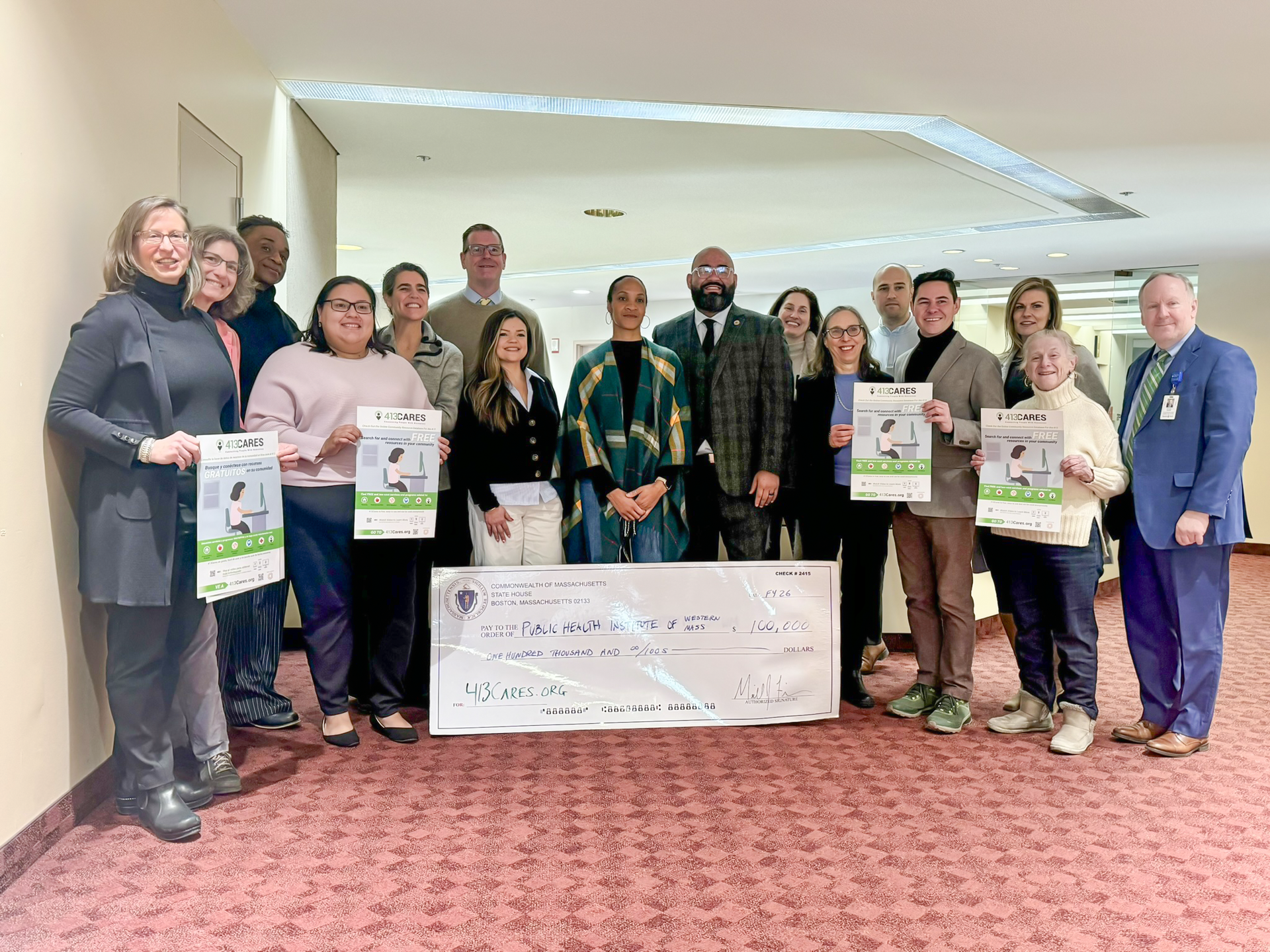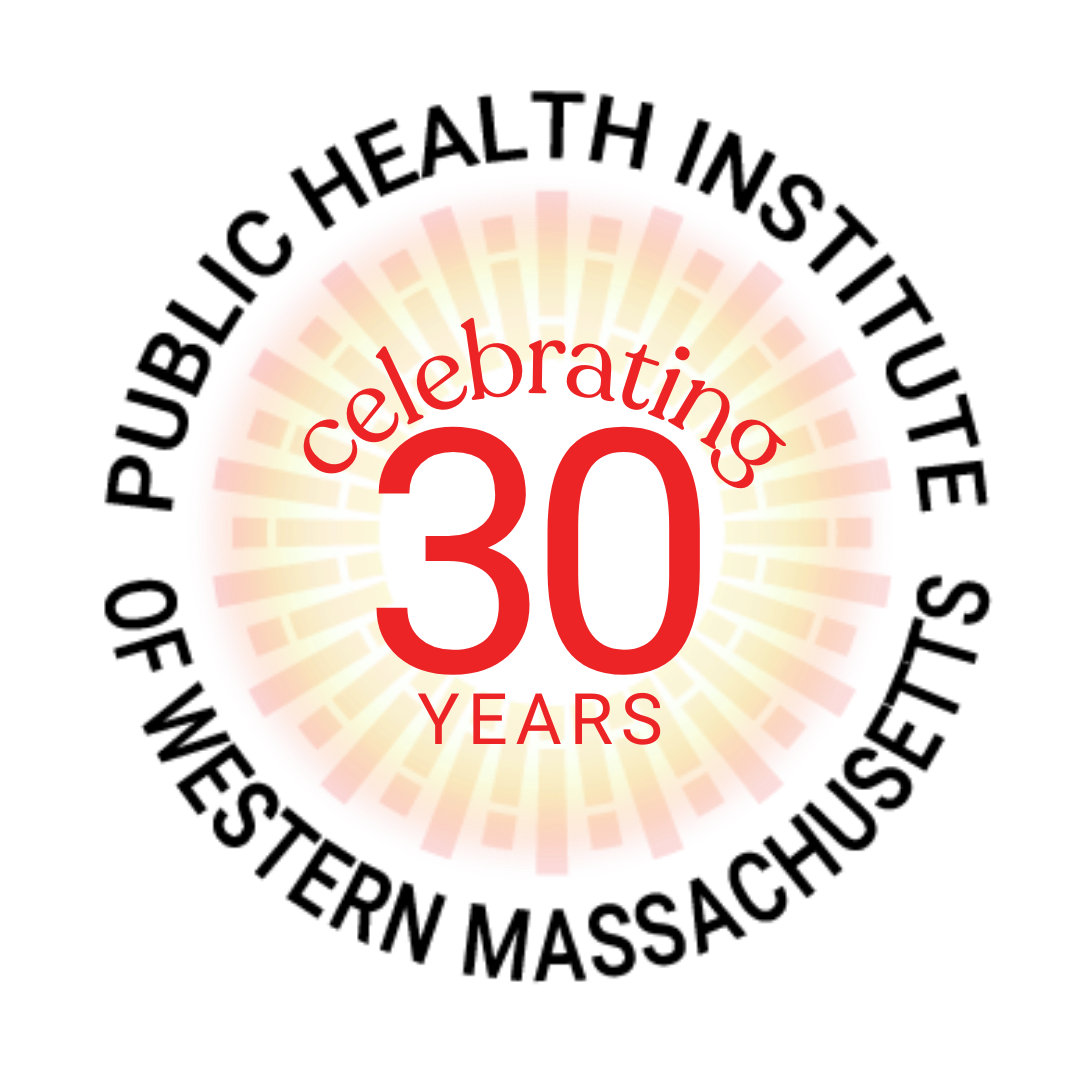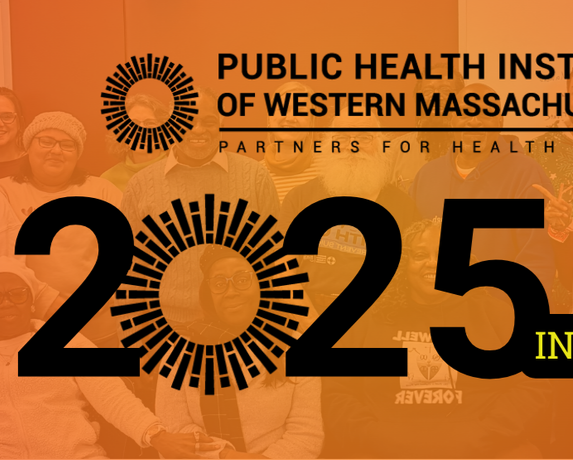COVID-19 in Western MA
As of July 26, 2020, there were 9,412 confirmed or suspected COVID-19 cases and 917 COVID-19 confirmed or suspected deaths in Western Massachusetts.
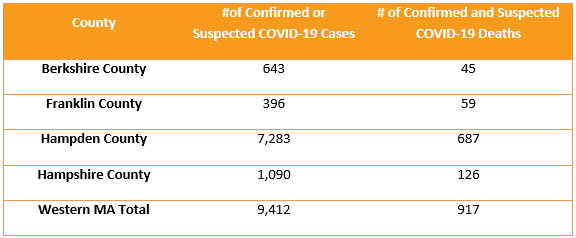
The number of new COVID-19 cases each week in Western Massachusetts has remained fairly steady since the beginning of June, with less than 200 new cases each week. The graph below shows the number of new COVID-19 cases each week in Western MA as well as milestones for the reopening MA.
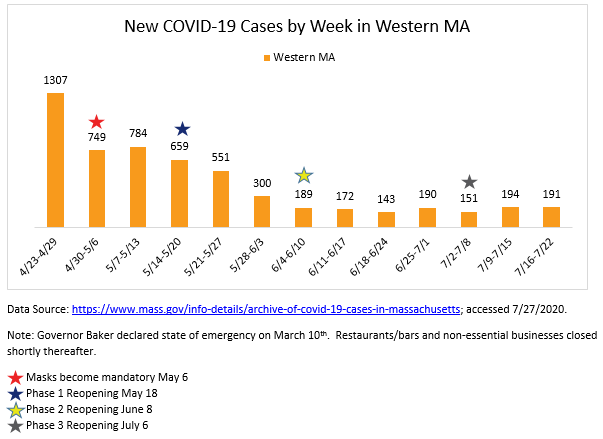
As stated in previous newsletters, caution should be exercised when interpreting COVID-19 data. For example, the rate of confirmed COVID-19 cases is dependent upon who is tested and not necessarily reflective of the distribution of COVID-19 in the general population. Testing has been limited thus far. Because many people who have the disease are asymptomatic and have not been tested, prevalence of people testing positive is unlikely to reflect the prevalence in communities. As testing and contact tracing increase, we will have a better understanding of impacts on communities and populations, and more targeted actions can take place to mitigate spread and support those who are disproportionately impacted.
To see rates for MA overall, visit Massachusetts Department of Public Health’s Data Dashboard. To see data specific to Western MA, check out our data archive.
share this
Related Articles
